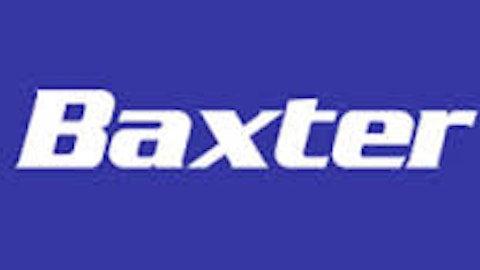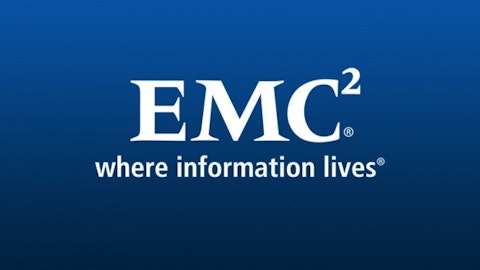
There’s one recent market debut, though, where the trepidation seems lower — KAMADA ORD ILS1.00 (NASDAQ:KMDA). This June, this Israel-based company completed its IPO for 5.6 million shares at $9.25 per share, raising $51.6 million in the process. Early takers reportedly were mostly U.S. investors, including prominent life-science funds.
Strength of plasma-derived proteins
Though the IPO price was much lower than the $10.60 per share the company was hoping for, the offering was oversubscribed threefold. Also on a positive note, KAMADA ORD ILS1.00 (NASDAQ:KMDA) shares hit a high of $11.14 two weeks after its trading started at NASDAQ and hasn’t closed lower than $10.50 so far this June. Dually with NASDAQ, the company is listed at the Tel Aviv Stock Exchange, where its shares have been trading since 2005 and enjoys the reputation as among the most stable and the most successful life-sciences equities in the Israeli bourse.
KAMADA ORD ILS1.00 (NASDAQ:KMDA), which has a market cap of about $310 million, focuses its drug development on plasma-derived protein therapeutics for which it has a proprietary platform technology. Through this capability, it extracts and purifies proteins from human plasma for the production of Alpha-1 Antitrypsin (AAT) and other plasma-derived proteins.
The therapeutic drug applications of AAT are derived not only from its immuno-modulatory and anti-inflammatory properties but also from its tissue-protective and antimicrobial qualities. AAT applications broadly include treatment of pulmonary or respiratory diseases, such as congenital emphysema.
Spearheading U.S. AAT therapy
KAMADA ORD ILS1.00 (NASDAQ:KMDA) is one of the first Israeli pharmaceutical companies to have obtained U.S. approval for its products. Specifically, its flagship Glassia® product brand is the first and only FDA-approved liquid, ready-to-use intravenous AAT product.
The Israeli company has an exclusive strategic cooperation agreement on Glassia with Baxter International Inc. (NYSE:BAX), a diversified global healthcare company based in Deerfield, Ill. Under this agreement which was extended recently up to 2016, Baxter International Inc. (NYSE:BAX) is the exclusive producer and distributor for the KAMADA ORD ILS1.00 (NASDAQ:KMDA) plasma-derived product in the U.S., Canada, Australia, and New Zealand. In 2012, Glassia sales totaled $34 million, most of which was generated in the U.S.
Notably, Baxter’s bioscience business, which includes plasma-based therapeutics and vaccines, exhibited strength in the 2013 first quarter with revenue for this segment rising 5% to $1.53 billion. Baxter International Inc. (NYSE:BAX) had a net income of $552 million and diluted EPS of $1.00 in this year’s first quarter. In the same period last year, net income was $588 million with diluted EPS at $1.04
Success echoed in Spain
Indications on further rewards from KAMADA ORD ILS1.00 (NASDAQ:KMDA)’s AAT domain can likewise be gleaned from Barcelona-based Grifols SA, Barcelona (NASDAQ:GRFS), also a leading world producer of plasma derivatives. For the 2013 first quarter, the company’s bioscience division posted a 3% gain in sales to about $787 million (reported as 604.8 million euros) and contributed 88.5% in total income. Grifols SA, Barcelona (NASDAQ:GRFS)’ net profit for the period rose 34.8% to $118 million (91 million euros), with AAT among the principal drivers of growth.
Looming breakthrough for inhaled AAT
Moving forward, prospects appear positive for Kamada, which generated 2012 total revenue of $73 million, up from $59 million in 2011 and sustaining growth for the past four years. EBITDA last year advanced to $9 million from the $1 million posted in 2011. From its extended partnership with Baxter alone, Kamada looks forward to reaping a total of $165 million in total revenue during the 2010–2016 contract lifetime. This year, Kamada expects to earn $4.5 million from this contract.
Kamada is also pinning its hopes for future growth on an inhaled AAT product, an innovation that is entering its phase II trial in the U.S. and already phase II/III in the European Union. Subject to regulatory approval, the company expects this innovation to hit the European market by 2015 and the U.S. by 2016.
Final take
To recap, KAMADA ORD ILS1.00 (NASDAQ:KMDA) looks a breed apart from the current crop of biotech IPOs as it has developed its own sound technology for AAT. Significantly, Glassia is but one of its 10 AAT-based offerings. The company has a strong intellectual property portfolio which was reaffirmed recently by the AAT patents it secured in Russia and Australia. Unlike most other pharma start-ups, this company already possesses a sound platform wherein resources expended on R&D stand a greater chance of delivering future dividends.
The article Can This Small Pharma Company’s Investors Breathe Easy? originally appeared on Fool.com and is written by Arturo Cuevas.
Arturo Cuevas has no position in any stocks mentioned. The Motley Fool has no position in any of the stocks mentioned. Arturo is a member of The Motley Fool Blog Network — entries represent the personal opinion of the blogger and are not formally edited.
Copyright © 1995 – 2013 The Motley Fool, LLC. All rights reserved. The Motley Fool has a disclosure policy.




